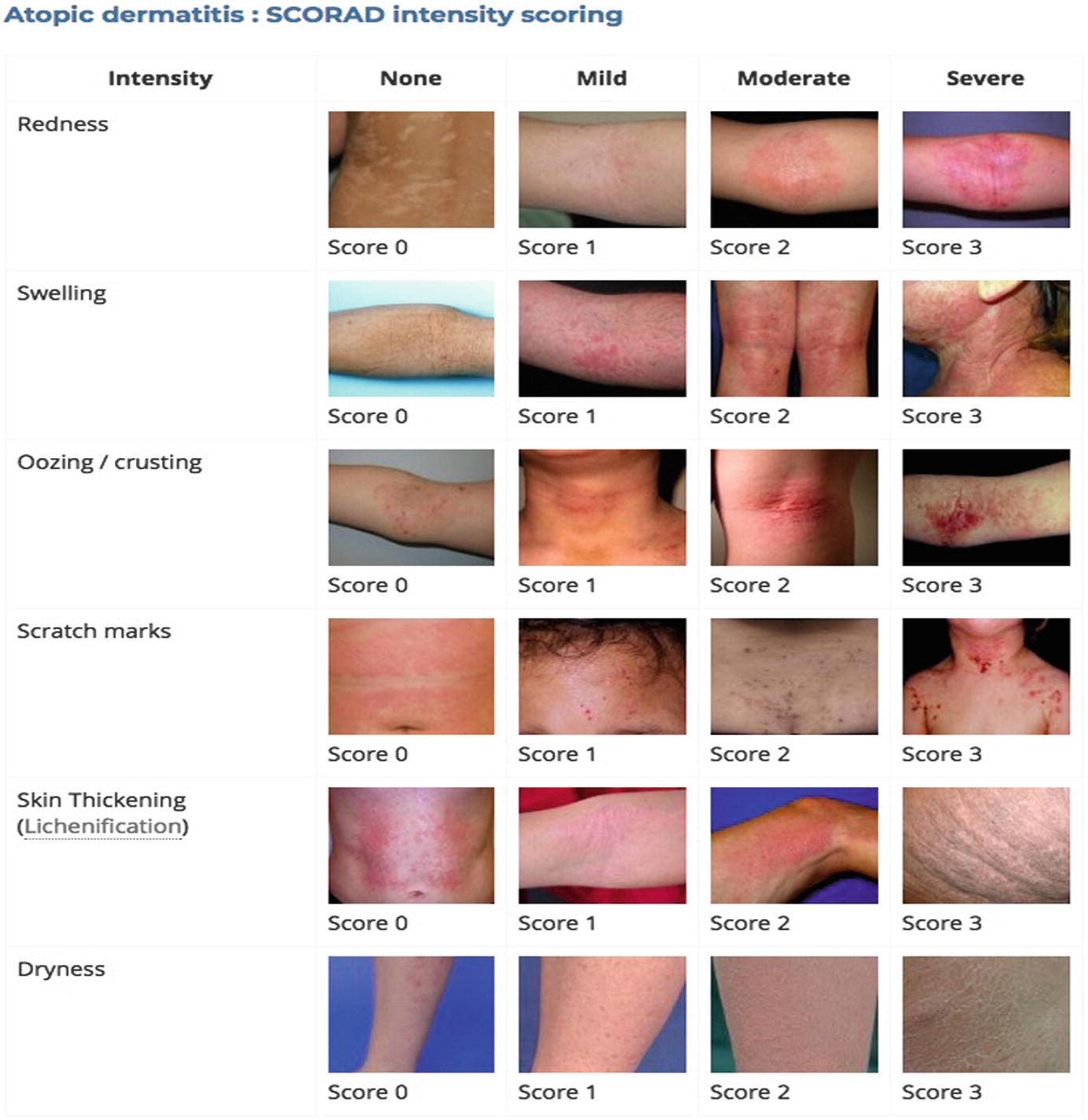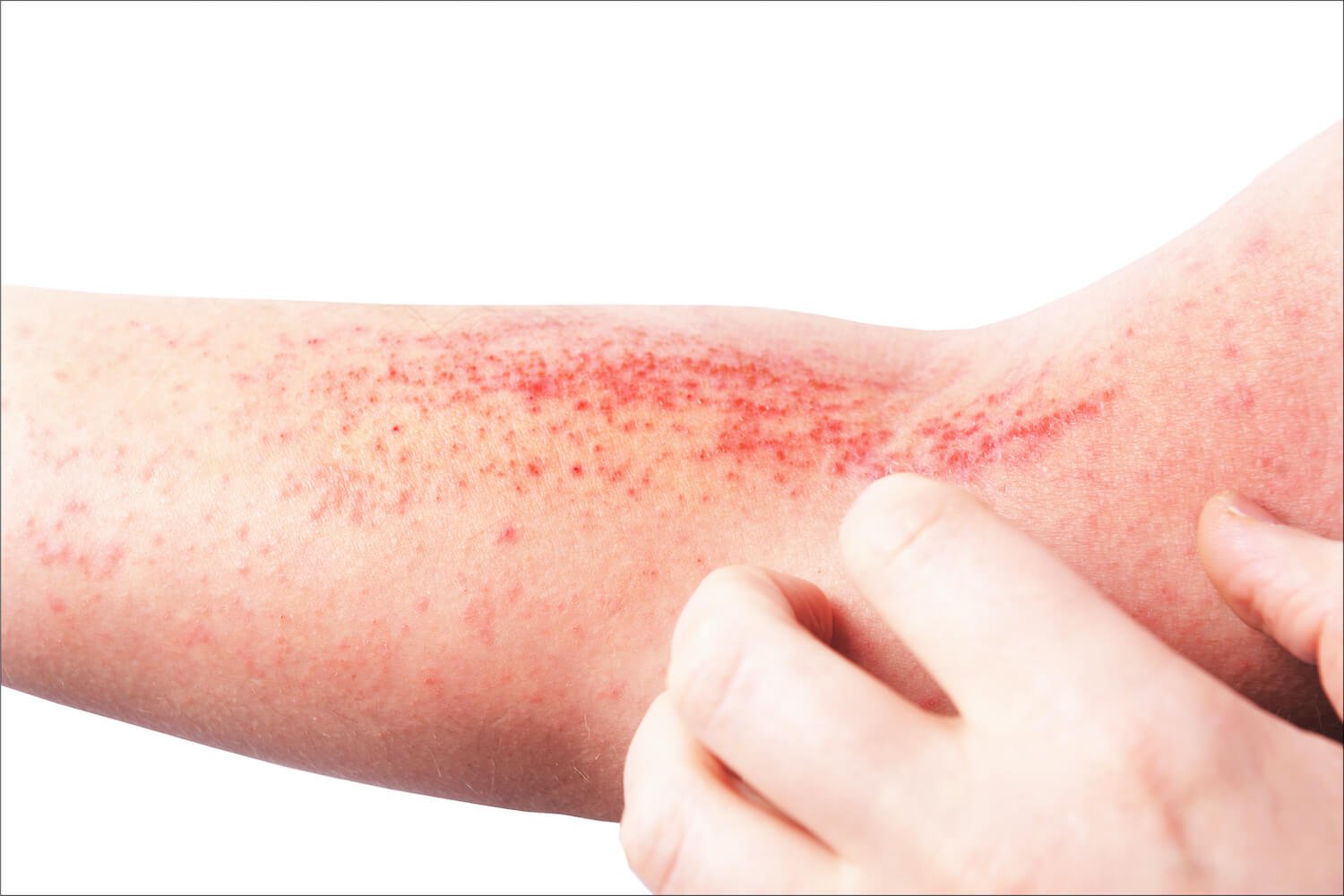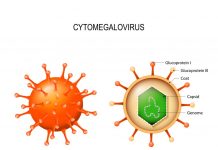Eczema means boil out (Greek: ec=out; zema=boil). In eczema, the skin seems to be boiling out. Eczema has been in use since the sixth century. As it has been imprinted in the minds of lay public, all efforts by the dermatologists to replace it with dermatitis have consistently failed during the last century.
Is Eczema and Dermatitis One and the Same?
Eczema and dermatitis are used synonymously most of the time. Dermatitis represents all inflammatory skin diseases, while eczema is a distinct pattern of dermatitis. Hence all eczema is dermatitis, while all dermatitis is not eczema. In general, dermatitis is used more commonly in United States, while eczema is used more commonly in Europe. For all purposes, in the discussions about eczema, dermatitis and eczema are used synonymously to avoid confusion.
What is Eczema?
Eczema and dermatitis mean inflammation of the skin, usually presenting with itching, redness, oozing or scaling of the skin. Depending upon the stage of the disease, eczema may be divided clinically into acute, sub acute and chronic eczema. According to the causes, eczema is classified into endogenous eczema and exogenous eczema.

What is Meant by Inflammation of Skin?
Inflammation of the skin is a cellular and vascular response of the skin to a variety of allergens including chemicals, infectious agents and other biological or physical agents. Inflammation has 5 characteristic signs:
- Calor: Heat
- Rubor: Redness
- Dolor: Pain
- Tumor: Swelling
- Functio laesa: Loss of function
Inflammation is actually a protective mechanism through which the body tries to eliminate the invading foreign bodies from the affected organs, including skin. When the inflammation damages the tissue, the disease process is set in motion.
What are the Clinical Stages of Eczema?
- Acute Eczema: Presents as oozy, red, itchy and edematous (local swelling) skin rashes with fluid filled blisters which dry up to become crusted and sticky.
- Sub–acute Eczema: Shows a diffuse redness, swelling, scabbing and scaling of skin.
- Chronic Eczema: Redness reduces; scaling increases, and later the skin become thickened and pigmented with furrows (collectively known as lichenification).
What are the Clinical Types of Eczema According to Causes?
Clinically eczema is divided into exogenous and endogenous depending upon the causes. Eczema caused by causative factors coming from outside are classified as exogenous eczema and when due to internal causes, as endogenous eczema. However, many eczemas lie within the twilight zone of the exogenous and endogenous, and are sometimes referred to as mixed cause eczemas. For example, atopic dermatitis, which is known as an endogenous eczema is known to be triggered by various exogenous causes, including food, dust, clothes, dry weather etc.
What are the Common Exogenous Eczemas?
- Contact allergic dermatitis
- Contact irritant dermatitis
- Infective eczema
- Physical eczema
- Photodermatitis
- Radiational Eczema
- Phytophotodermatitis
- Eczematous fungal infection
- Secondary eczematization to infections and infestations

What are the Common Endogenous Eczemas?
- Atopic dermatitis
- Seborrheic dermatitis
- Asteatotic dermatitis (Dry eczema)
- Nummular eczema (Discoid eczema)
- Pityriasis alba
- Stasis dermatitis
- Lichen simplex chronicus (neurodermatitis)
- Pompholyx (dyshidrotic eczema)
- Juvenile plantar dermatosis (childhood foot eczema)
- Ide eruptions (auto-eczematization)
Thus eczema encompasses a wide array of inflammatory skin diseases that are managed individually according to the causes and triggers of each.


















